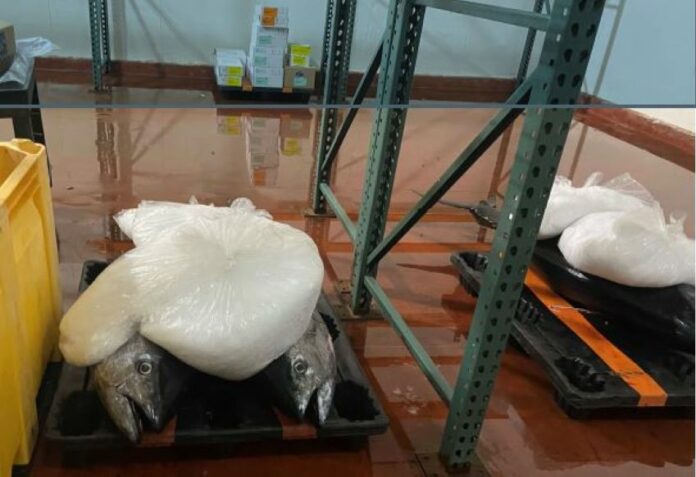SAN DIEGO— California Department of Fish and Wildlife (CDFW) law enforcement uncovered a network of recreational fishermen engaged in commercial fishing businesses with no regard to limits, documentation or adhering to the highly regulated business practices of the commercial fishing industry. The investigation revealed more than 5,500 pounds of fish were unlawfully bought and sold for more than $26,000.
Wildlife officers investigated David Haworth, 60, of San Diego, and Nicholas Haworth, 28, of La Jolla, who were buying and selling recreationally caught fish, failing to land fish (documenting the fish once it reaches land), facilitating the operation of an unlicensed fish business and falsifying landing documents to hide their poaching crimes.
CDFW officers spent more than six months on the investigation revealing evidence that the Haworths were illegally buying, and re-selling recreationally caught fish through associations with a network of recreational fishermen.
Wildlife officers obtained evidence that Lucas Dirkse, 29, of San Diego, Mitchell Bradford, 36, of San Diego, Brandon Demelo, 24, of San Diego, Tanner Whitmarsh, 30, of El Cajon, Trevor Whitmarsh, 25, of El Cajon and David Brown, 68, of San Diego, were selling fish to the Haworths. By selling fish to the Haworths, participants engaged in numerous illegal fishing activities including failure to register as a commercial fishing vessel, failing to obtain required permits through the federal National Oceanic and Atmospheric Administration, selling fish caught on a commercial passenger fishing vessel and falsifying documents among many more violations.
“Letting these crimes continue without robust enforcement and prosecution jeopardizes the sustainability of California’s commercial fishing industry and the majority of those commercial fishers who comply with the law,” said Nathaniel Arnold, acting chief of CDFW’s Law Enforcement Division. “Illegal sales of recreationally caught fish bypasses both paths for sampling and accounting of total catch.”
- Nicholas Haworth pleaded guilty to two counts of unlawful sale of recreationally caught fish, agreeing to community service and a $10,000 fine.
- David Haworth received court-ordered diversion for unlawful sale of recreationally caught fish and agreed to community service and agreed to host six events feeding fish meals to the homeless through the local food bank.
- Mitchell Bradford pleaded guilty to one count of unlawful sale of recreationally caught fish, agreeing to community service and a $5,000 fine.
- Lucas Dirkse pleaded guilty to one count of unlawful sale of recreationally caught fish, agreeing to community service and a $5,000 fine.
- Brandon Demelo pleaded guilty to unlawful sale of recreationally caught fish, agreeing to community service and a $5,000 fine.
- Tanner and Trevor Whitmarsh were charged civilly for unfair business practices and agreed to a fine of $60,000 each.
- David Brown failed to appear at his arraignment and has an active warrant for his arrest.
“Many of us live in San Diego because we appreciate the region’s natural wonders, including the fish that populate our rivers and oceans,” said San Diego City Attorney Mara W. Elliott. “California’s strict environmental laws exist for one reason: to protect nature and to ensure its existence for generations to come. Our ability to enjoy the outdoors depends on vigorous enforcement and prosecution of the laws that preserve our surroundings.”
California fisheries biologists and their federal partners manage the recreational and commercial fishing sectors separately, and each has individual rules and regulations to ensure the harvest of marine species is sustainable. Many fish stocks have strict quotas, limiting total commercial catch and restricting recreational catches. Both state and federal scientists collect biological data for landed fish, which feeds into abundance estimates, international negotiations, and domestic management. Commercial catches are carefully weighed and reported when taken off the boat to account for the amount removed from the fish populations. Estimates of recreational catch are also reported, sampled at launch areas, and used in stock assessments and management.




